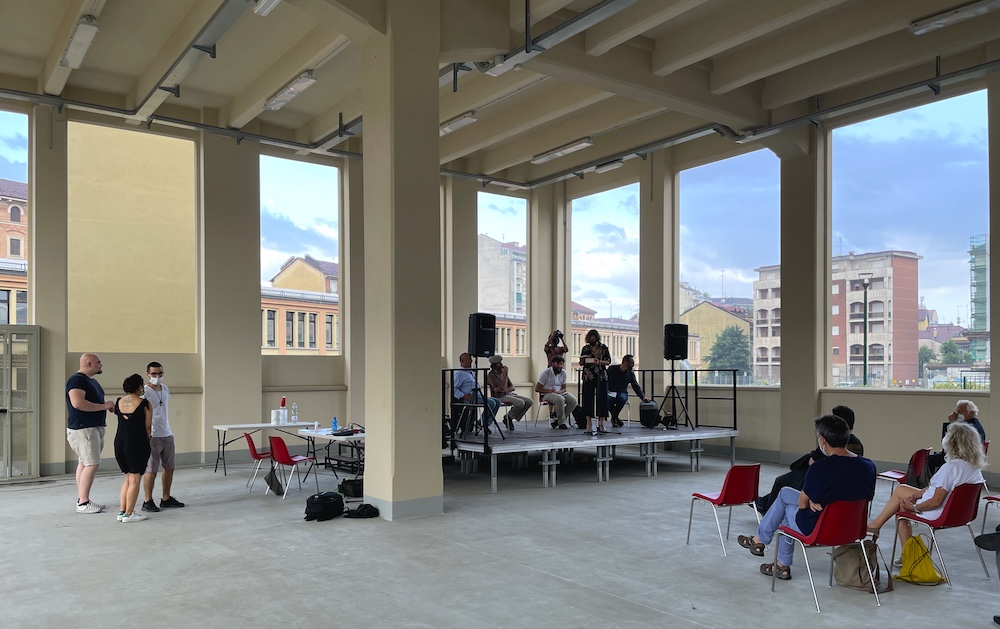
Turin’s Tavolo Tecnico: Inter-departmental cooperation for the commons
A Pact of collaboration is a negotiation between the city administration and civil subjects through which the regeneration, care and co–management of urban commons is

A Pact of collaboration is a negotiation between the city administration and civil subjects through which the regeneration, care and co–management of urban commons is

The city of Naples (Italy)[1] is an exemplary case study of how a city can co-design legal and sustainable urban commons governance mechanisms and enable

Urban Commons are all those spaces, services and resources that are directly managed by local communities for their wellbeing. Taking care of such common goods

Responses to the economic crisis of 2007-2008, and ambitions to create autonomous systems of exchange generated hundreds of complementary currencies in the past decade. Created

The international debate on the commons has a long history but only in recent years has it started gearing towards the definition of Urban Commons
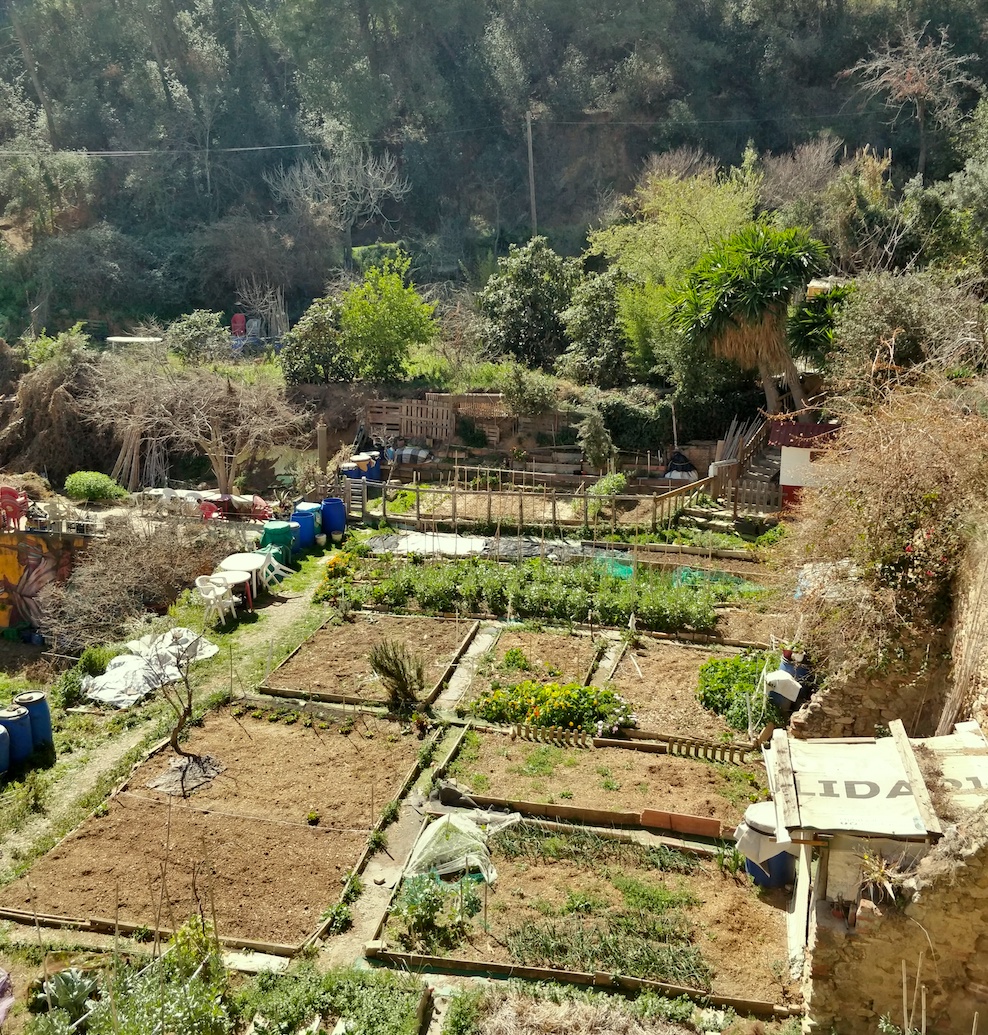
In the global pursuit of sustainable urban development, Barcelona has emerged as a pioneering city, leading the way in fostering a sustainable and healthy food
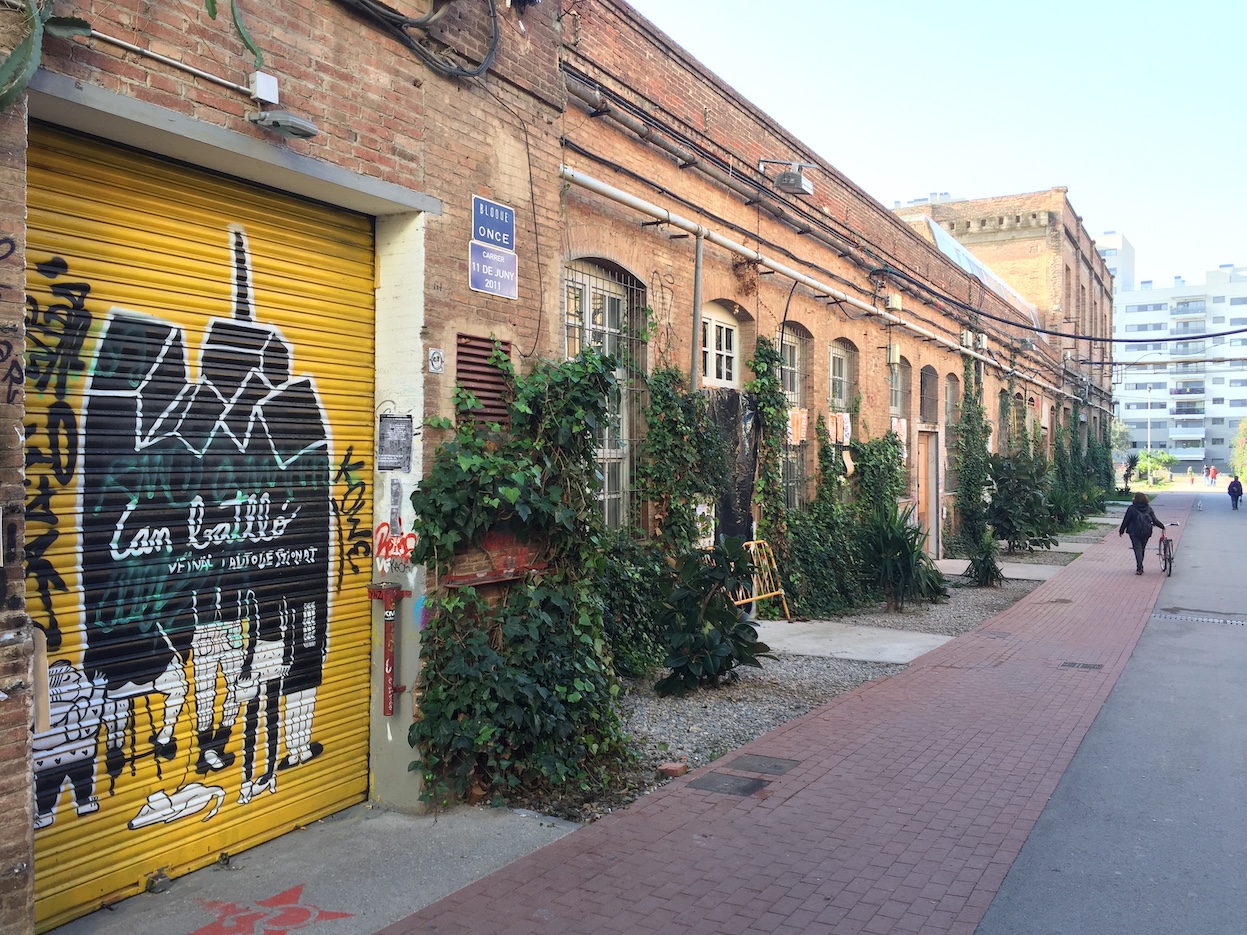
Like other major European cities, Barcelona has a great industrial heritage that can now be re-used for a new and different development of its urban

Article by Levente Polyak for publicspace.org, a project by the CCCB. In 1748, the Italian architect Giambattista Nolli published an ichnographic plan of Rome, documenting
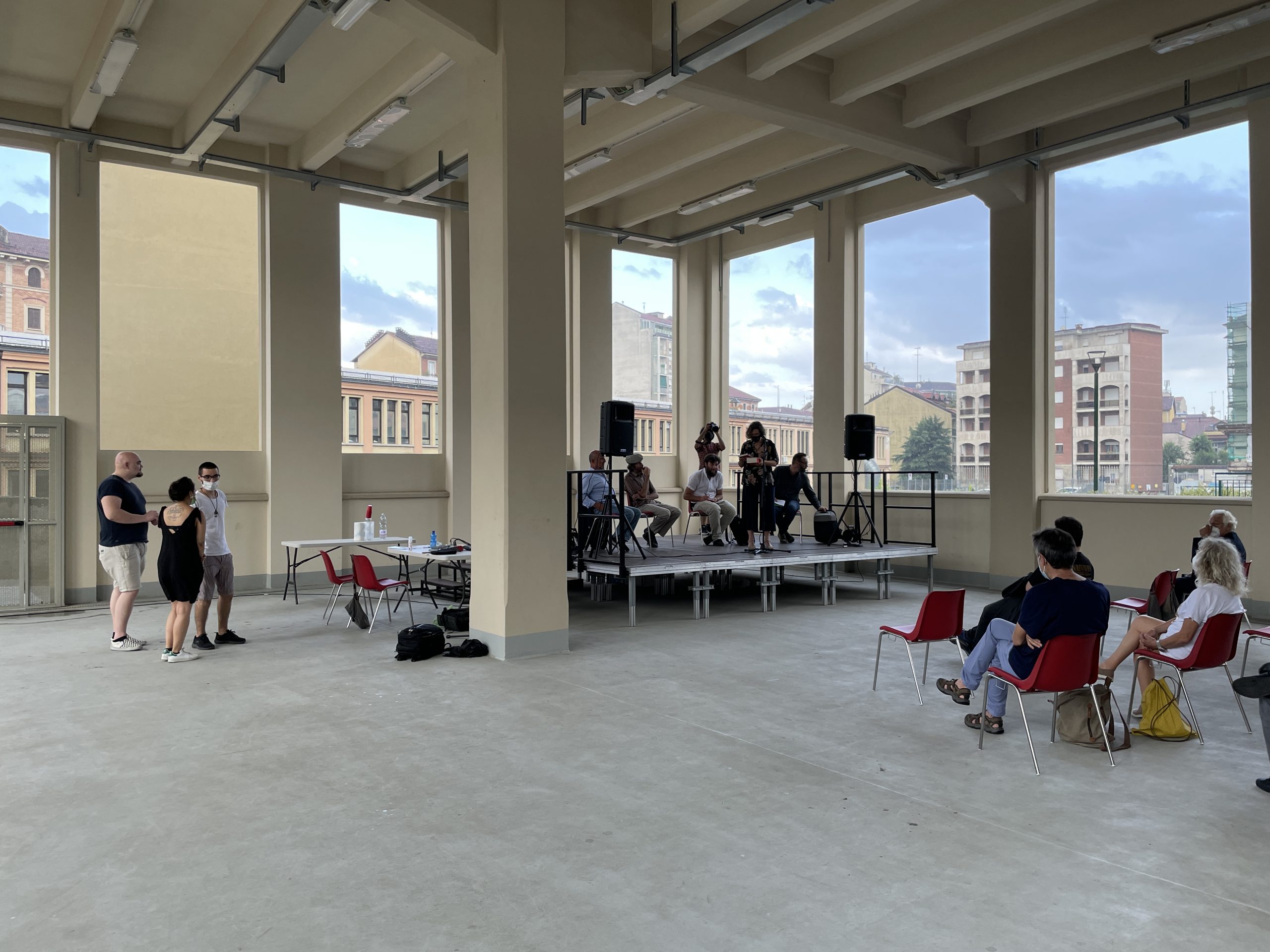
Local communities and their local governments have two possible ways to cooperate. One is centred upon the use of public procurement for social purposes. The
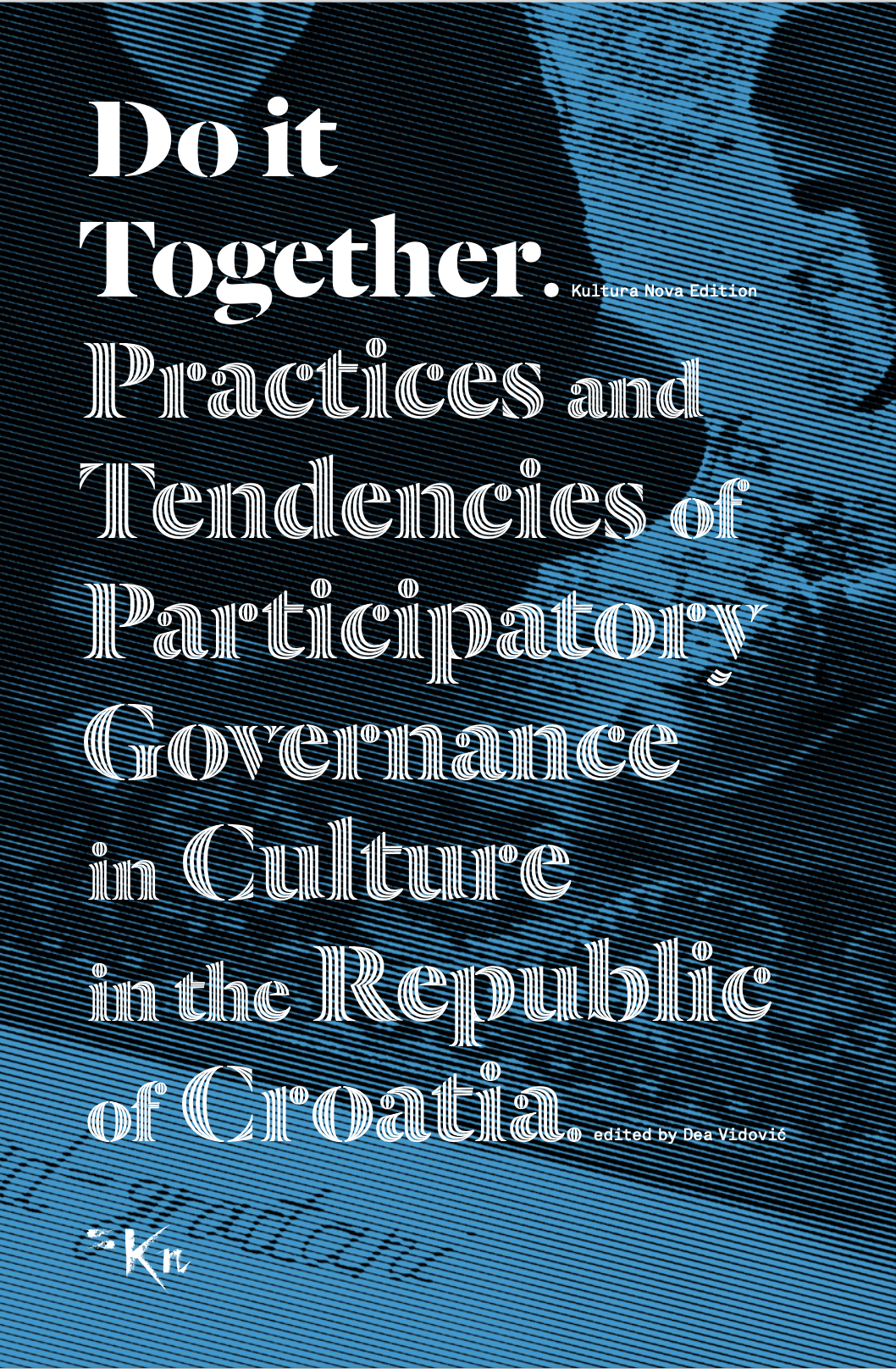
Kultura Nova is a public foundation promoting civil society organisations in the field of contemporary arts and culture. The foundation was established in 2011, when
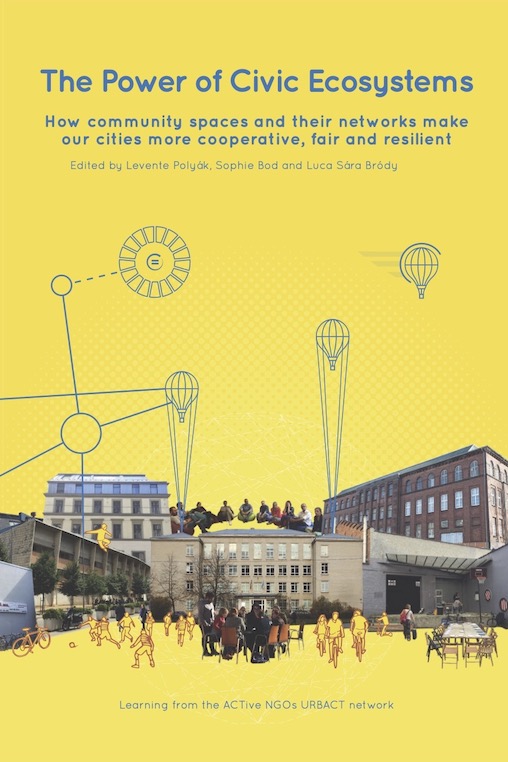
The Power of Civic Ecosystems: How community spaces and their networks make our cities more cooperative, fair and resilient Public-civic cooperation has never been as
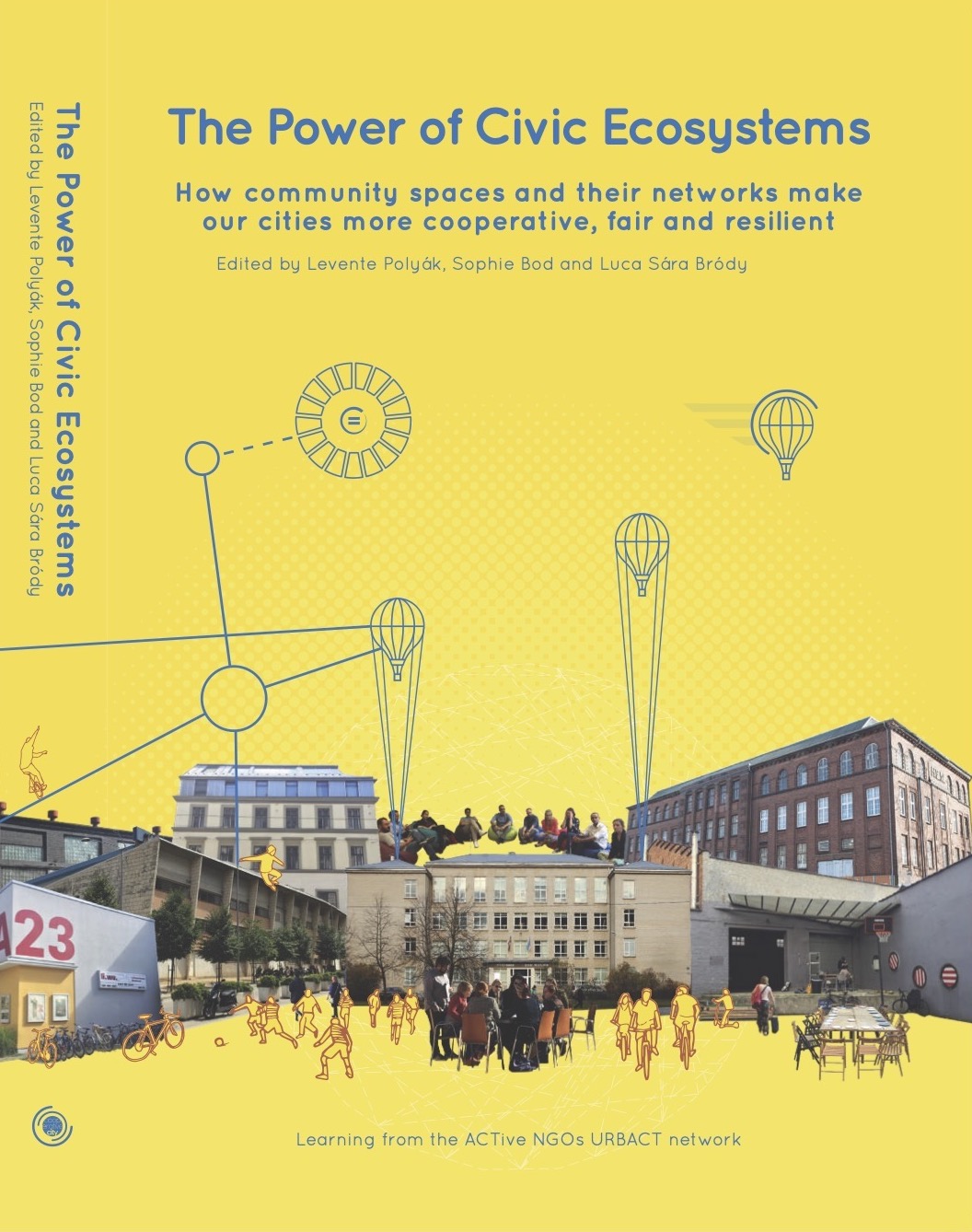
Edited by Levente Polyák, Sophie Bod and Luca Sára Bródy (Eutropian – Cooperating for Urban Justice)
Design by Jorge Mosquera Suárez
Publisher: Cooperative City Books, Vienna, June 2021
Format: Paper size B5, 320 pages
ISBN 978-3-9504409-2-8
The book is licensed under Creative Commons Attribution-NonCommercial-NoDerivatives 4.0 International (CC BY-NC-ND 4.0)

The Power of Civic Ecosystems: How community spaces and their networks make our cities more cooperative, fair and resilient Edited by Levente Polyák, Sophie Bod
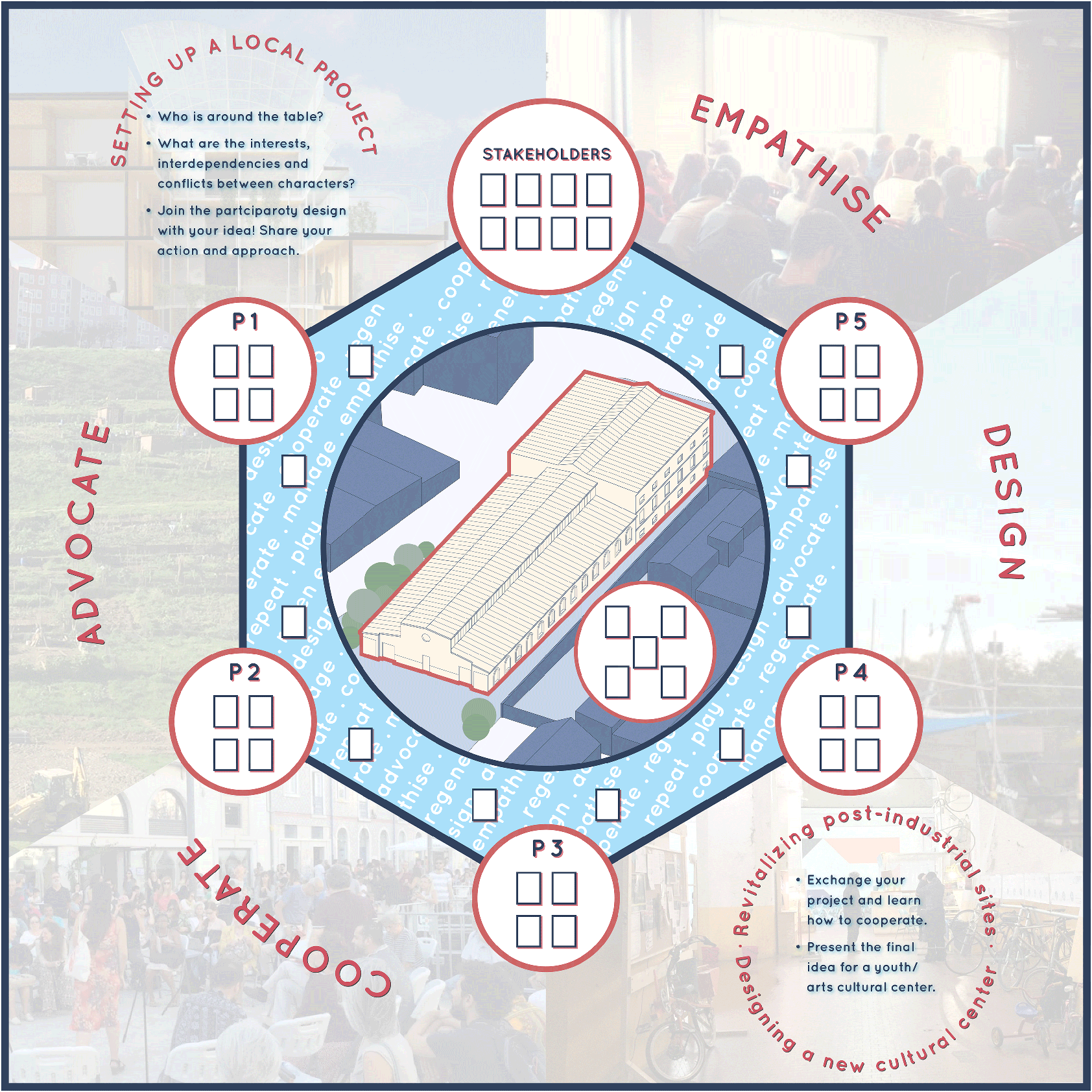
Living and working in times of physical distancing and – sometimes forced – digitalisation cannot always be about video meetings via Zoom, Skype or other
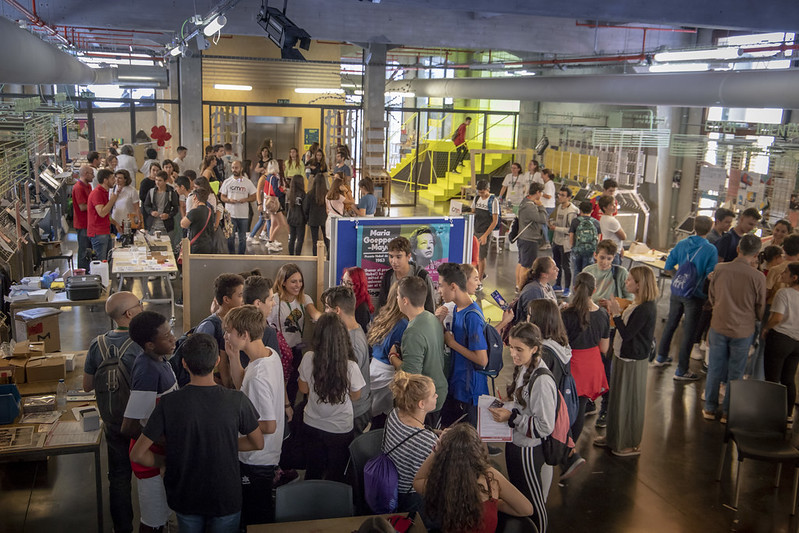
Medialab Prado is a citizen laboratory that functions as a meeting place for the production of open cultural projects. It is a cultural space and
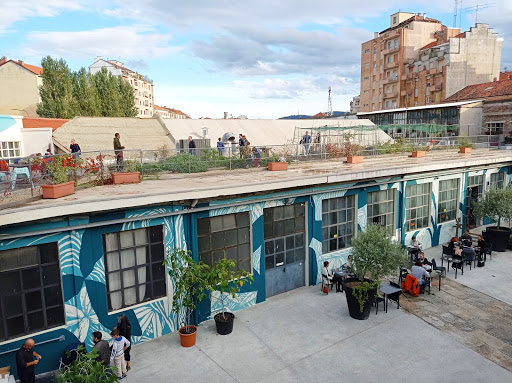
BeeOzanam is a community hub whose challenge is to combat cultural poverty and social exclusion, stimulating the growth of a sustainable generation through the co-production

Interview with Daniela Patti, Director of Eutropian by the European Urban Knowledge Network. How can we prepare for and cope with crisis situations in dense
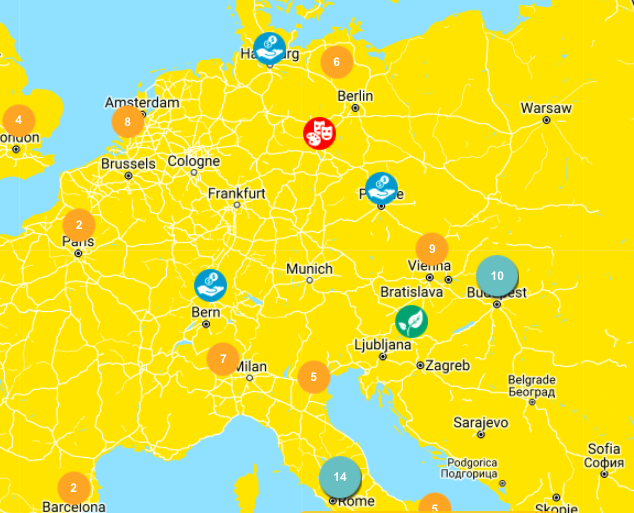
Realising the need to create international dialogue on handling the COVID-19 crisis at the local level, Eutropian launched a weekly webinar to connect activists and
What is the Magazine about? Cooperative City Magazine brings its readers the stories of collaborative urban development processes in different areas in Europe.It is a
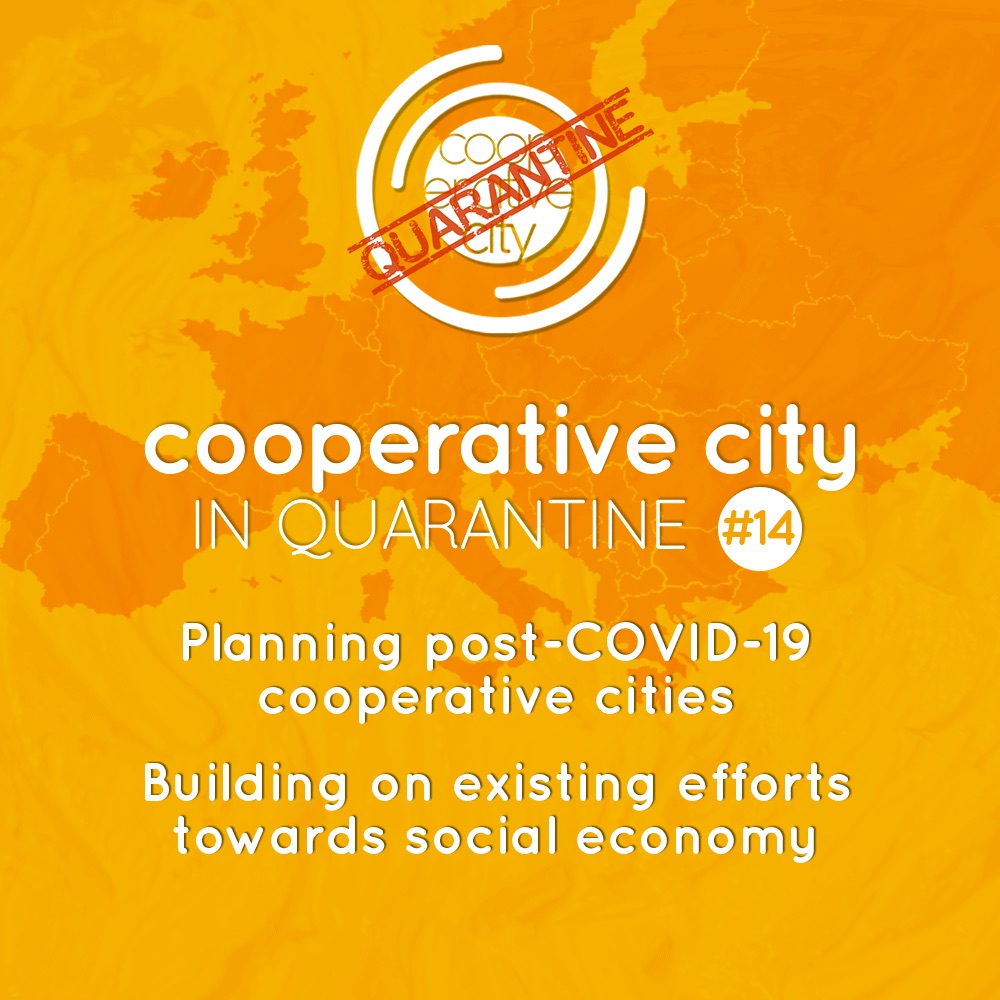
During the first weeks of the lockdown we noticed that there was little or no exchange across nations about how to respond to the emerging
#2 Placemaking at the street-level We discuss how tactical urbanism, notably street-level experiments can lead to systemic sustainable transition at the city-level. Watch video #1

I beni comuni urbani (Urban Commons) sono tutti quegli spazi, servizi e risorse che favoriscono il benessere delle comunità locali e sono gestiti da
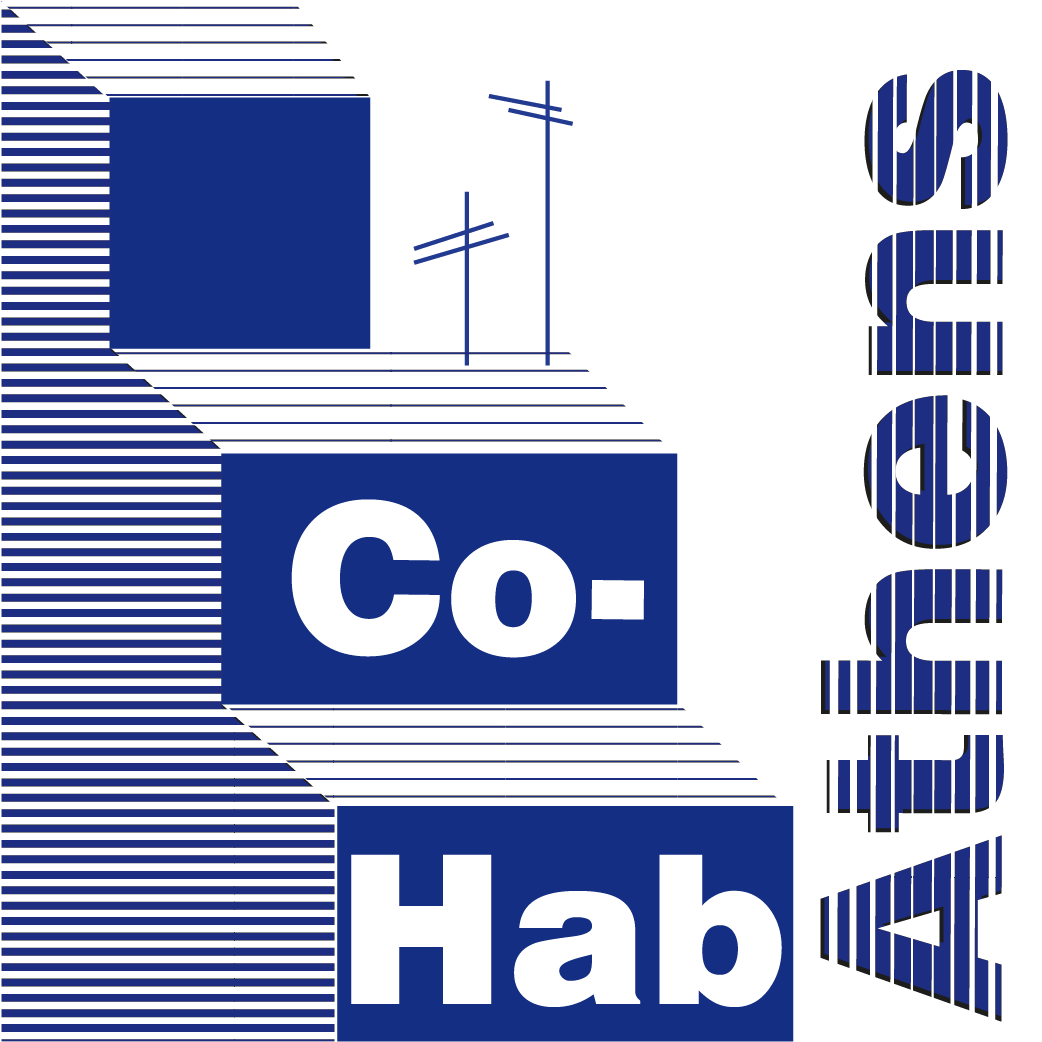
Co-Hab Athens is a research project which aims to elaborate long-term models of collective housing ownership, claiming the quality of housing as a right. Active
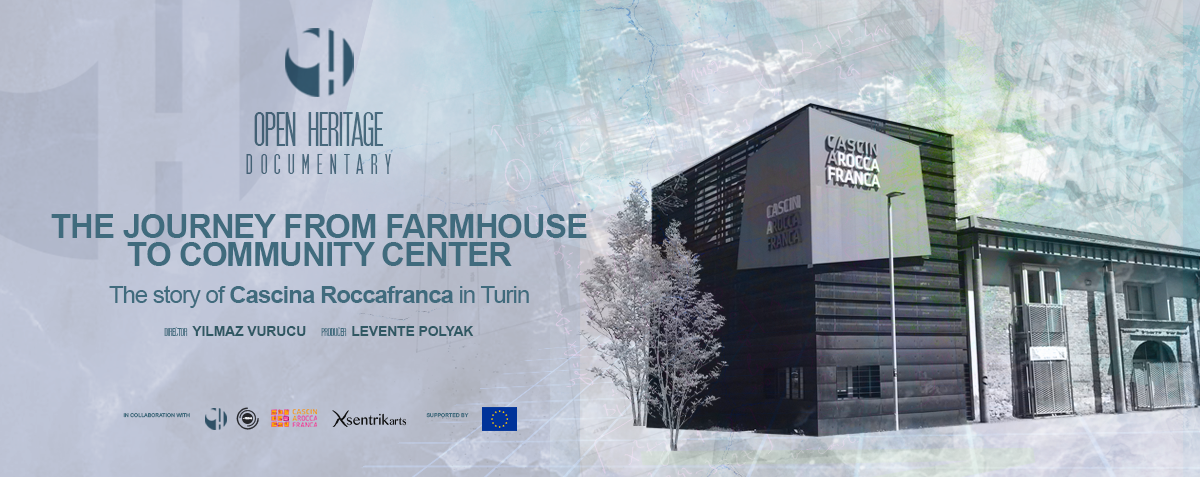
Cascina Roccafranca is a multi-functional community center located in a former farmstead in Turin’s outskirts. After 30 years of vacancy, Cascina Roccafranca was bought by the Municipality of Turin and requalified with the support of the European Union Urban II program. Today, Cascina Roccafranca is a public asset managed through a cooperation between public and civic actors and it provides a wide range of social and cultural activities. Since 2012, Cascina Roccafranca has been part of a network of similar community centers in Turin which was formalized in 2017, and today collaborates with the City Council in the management and the regeneration of urban commons.

Ecos is a cooperative of cooperatives which works to support the growth of single cooperatives and to promote inter-cooperatives projects in Barcelona. In this article,
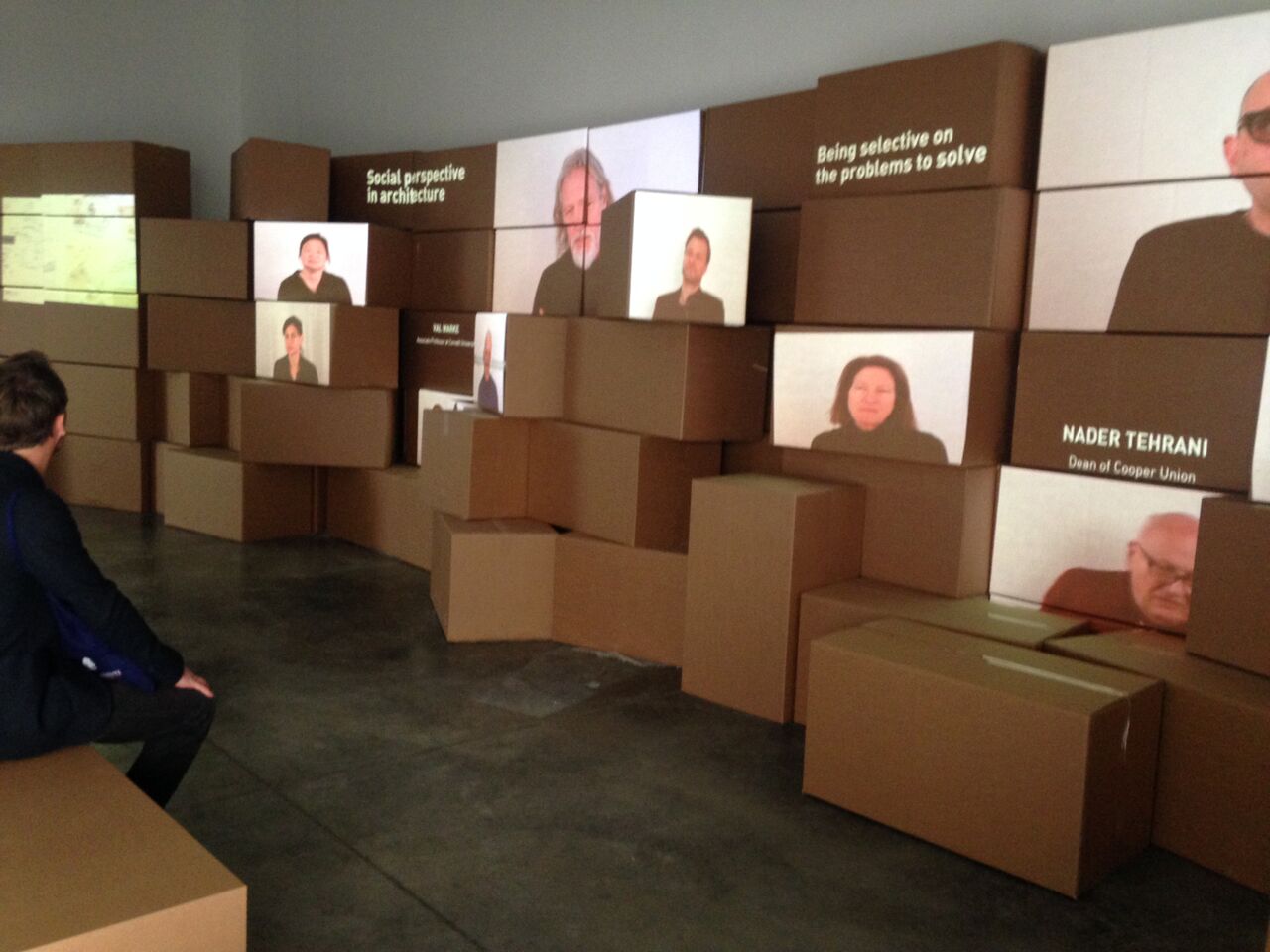
The US presidential election results came as a surprise to many of us especially because we hadn’t encountered any testament of sweeping support towards the
Funding the Cooperative City: Community Finance and the Economy of Civic Spaces Edited by Daniela Patti & Levente Polyák (Eutropian Research & Action) Publisher: Cooperative

Funding the Cooperative City: Community Finance and the Economy of Civic Spaces Edited by Daniela Patti & Levente Polyák (Eutropian Research & Action) Publisher: Cooperative

Stad in de Maak is an association set up to take on the redevelopment of vacant properties in Central Rotterdam, together with the local community.

In the last decades, ownership has become a key factor of our societies and economies. As Thomas Piketty demonstrated in his recent book Capital in
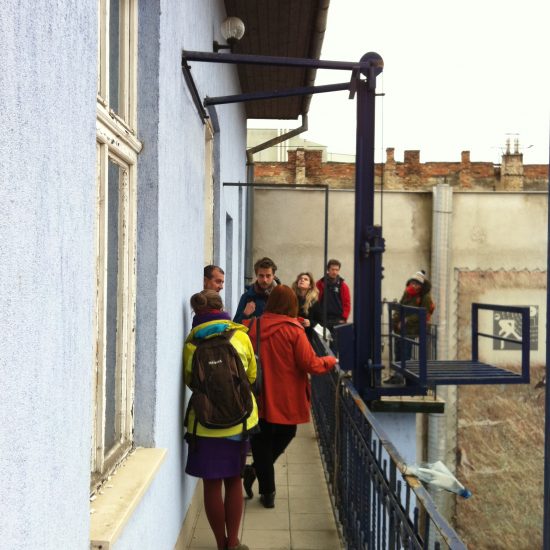
In 2011 a dozen young people retreated for a weekend to one of the suburbs of Hungary’s capital to discuss the alternatives of individual home-ownership,
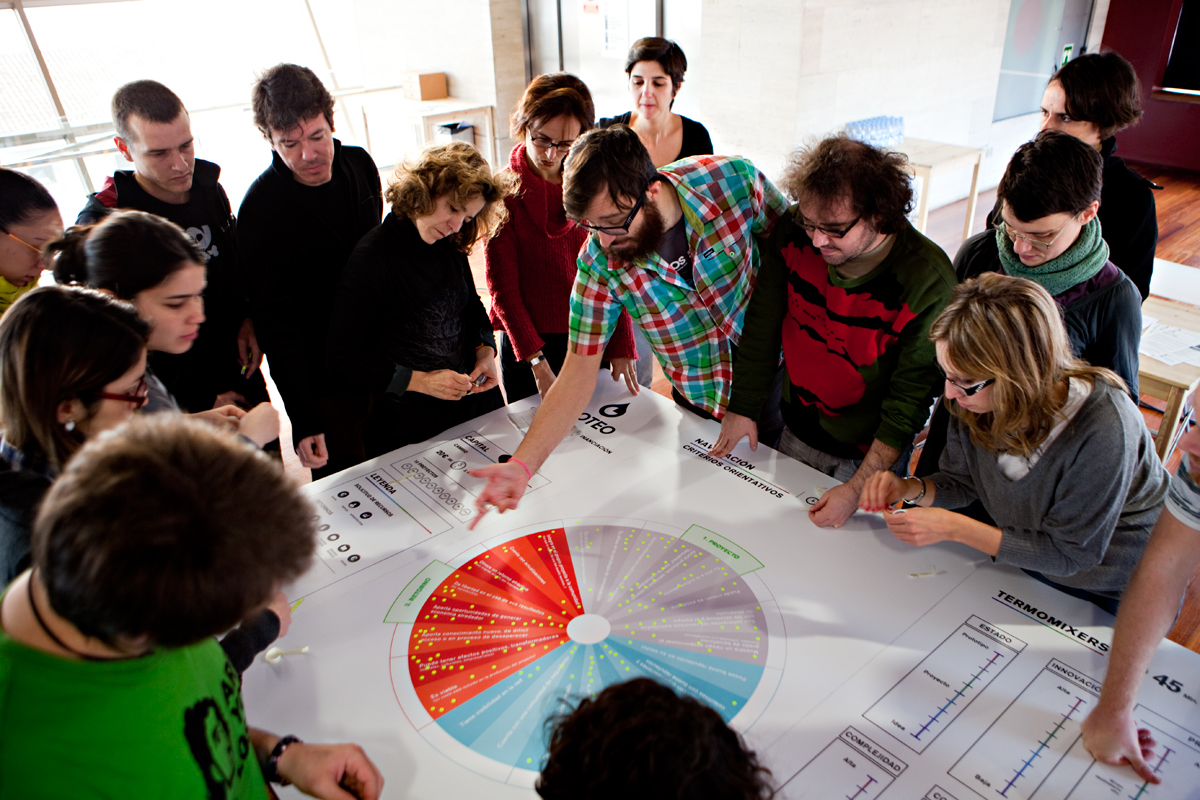
Goteo is a platform for civic crowdfunding founded by Platoniq, a Catalan association of culture producers and software developers. Goteo helps citizen initiatives as well

Funding the Cooperative City: Community Finance and the Economy of Civic Spaces
Edited by Daniela Patti & Levente Polyák
Eutropian Research & Action
Cooperative City Books, Vienna, 2017
ISBN 978-3-9504409-0-4
This work is licensed under a Creative Commons Attribution-NonCommercial-NoDerivatives 4.0 International (CC BY-NC-ND 4.0)
For more information visit https://cooperativecity.org/funding-the-cooperative-city/
Please support us with a donation and subscribe to the Cooperative City newsletter to stay updated.
Funding the Cooperative City explores how citizen initiatives, cooperatives, non-profit companies, community land trusts, crowdfunding platforms, ethical banks and anti-speculation foundations step out of the regular dynamisms of real estate development and arrange new mechanisms to access, purchase, renovate or construct buildings for communities. Through interviews and analyses, this book describes tendencies and contexts, and presents stories and models of community finance and civic economy. It offers a helpful set of resources not only for community organisations and initiators of civic spaces, but also for private developers, municipalities and EU institutions that are willing to support, facilitate or cooperate with them in order to create more resilient and inclusive local communities, facilities and services.
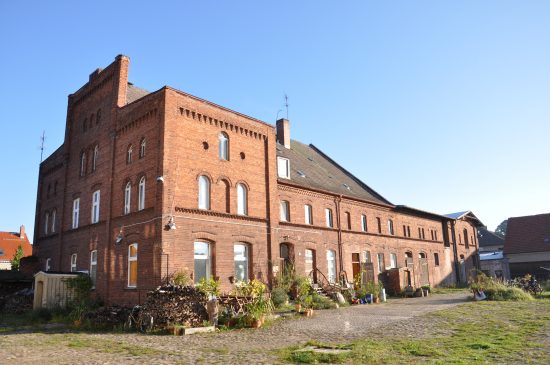
Stiftung trias was established in 2002, to help community groups and co-housing projects access financing. Trias takes land off the market by separating the ownership
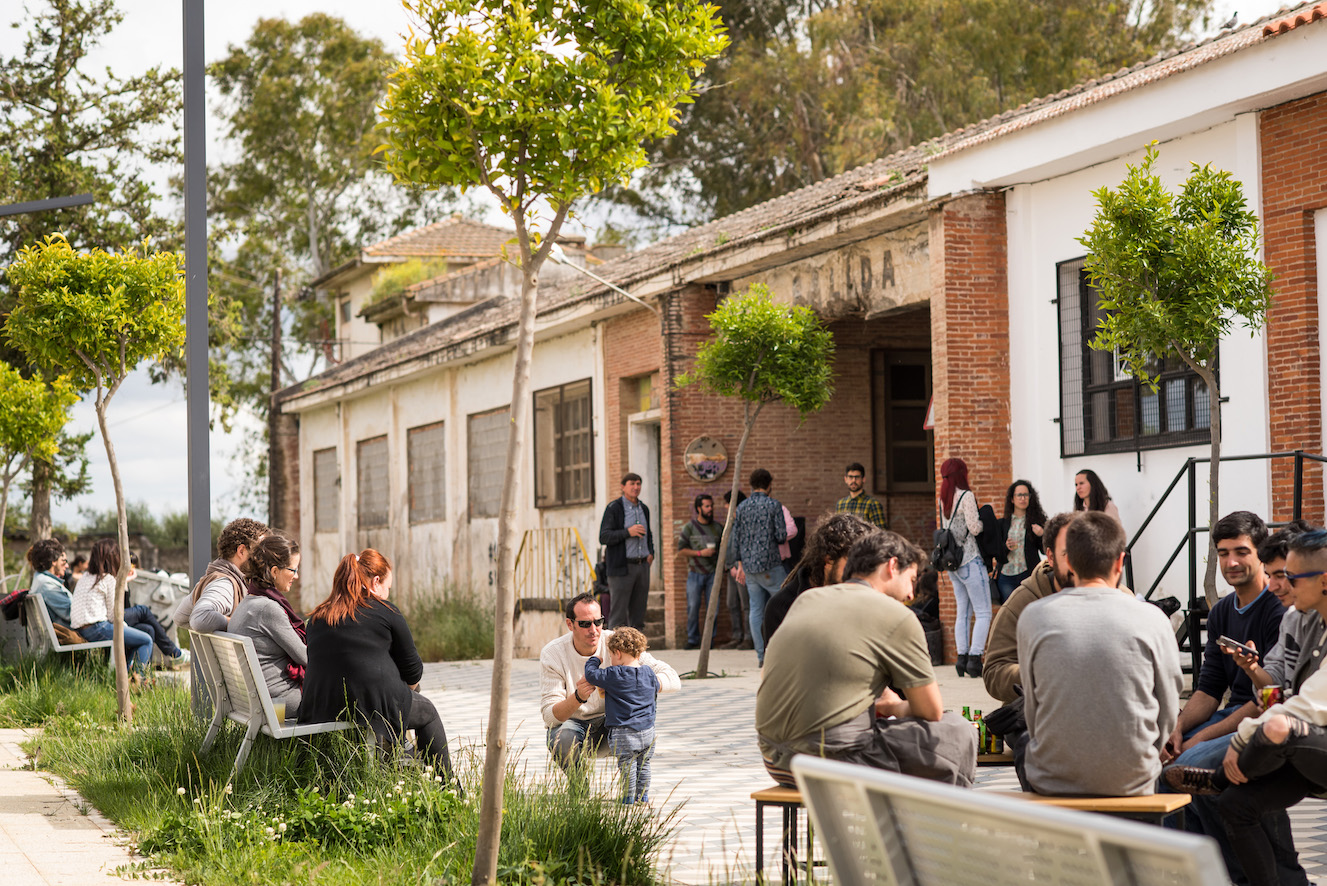
LaFabrika detodalavida is a multifunctional community centre in Los Santos de Maimona in Extremadura (ES), that offers a series of local services to its rural

Funding the Cooperative City: Community Finance and the Economy of Civic Spaces Edited by Daniela Patti & Levente Polyák (Eutropian Research & Action) Publisher: Cooperative
In the past decade, with the economic crisis and the transformation of welfare societies, NGOs, community organisations and civic developers – City Makers – established
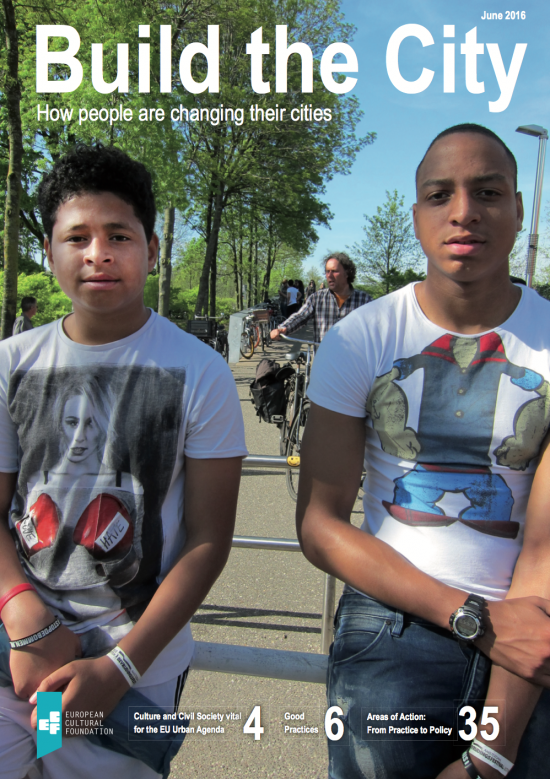
The 26 practices highlighted in this publication are civil-public partnerships based on principles of the commons – enabling citizens and governments to share power, co-design and co-shape legislation, management or collective action for the common good. Magazine curated by the European Cultural Foundation.
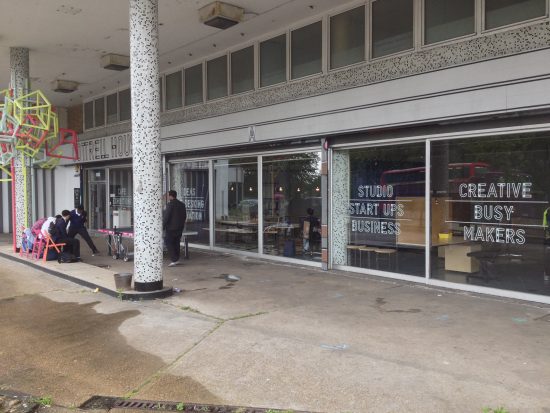
Temporary use is a learning process of accommodating innovation and adapting needs and capacities to available resources. It offers benefits to owners and users, in
© Copyright 2017 – 2025 by Eutropian GmbH. All rights reserved. I Imprint / Disclaimer | Data Privacy Policy | Contact
| Cookie | Duration | Description |
|---|---|---|
| cookielawinfo-checkbox-analytics | 11 months | This cookie is set by GDPR Cookie Consent plugin. The cookie is used to store the user consent for the cookies in the category "Analytics". |
| cookielawinfo-checkbox-functional | 11 months | The cookie is set by GDPR cookie consent to record the user consent for the cookies in the category "Functional". |
| cookielawinfo-checkbox-necessary | 11 months | This cookie is set by GDPR Cookie Consent plugin. The cookies is used to store the user consent for the cookies in the category "Necessary". |
| cookielawinfo-checkbox-others | 11 months | This cookie is set by GDPR Cookie Consent plugin. The cookie is used to store the user consent for the cookies in the category "Other. |
| cookielawinfo-checkbox-performance | 11 months | This cookie is set by GDPR Cookie Consent plugin. The cookie is used to store the user consent for the cookies in the category "Performance". |
| viewed_cookie_policy | 11 months | The cookie is set by the GDPR Cookie Consent plugin and is used to store whether or not user has consented to the use of cookies. It does not store any personal data. |
